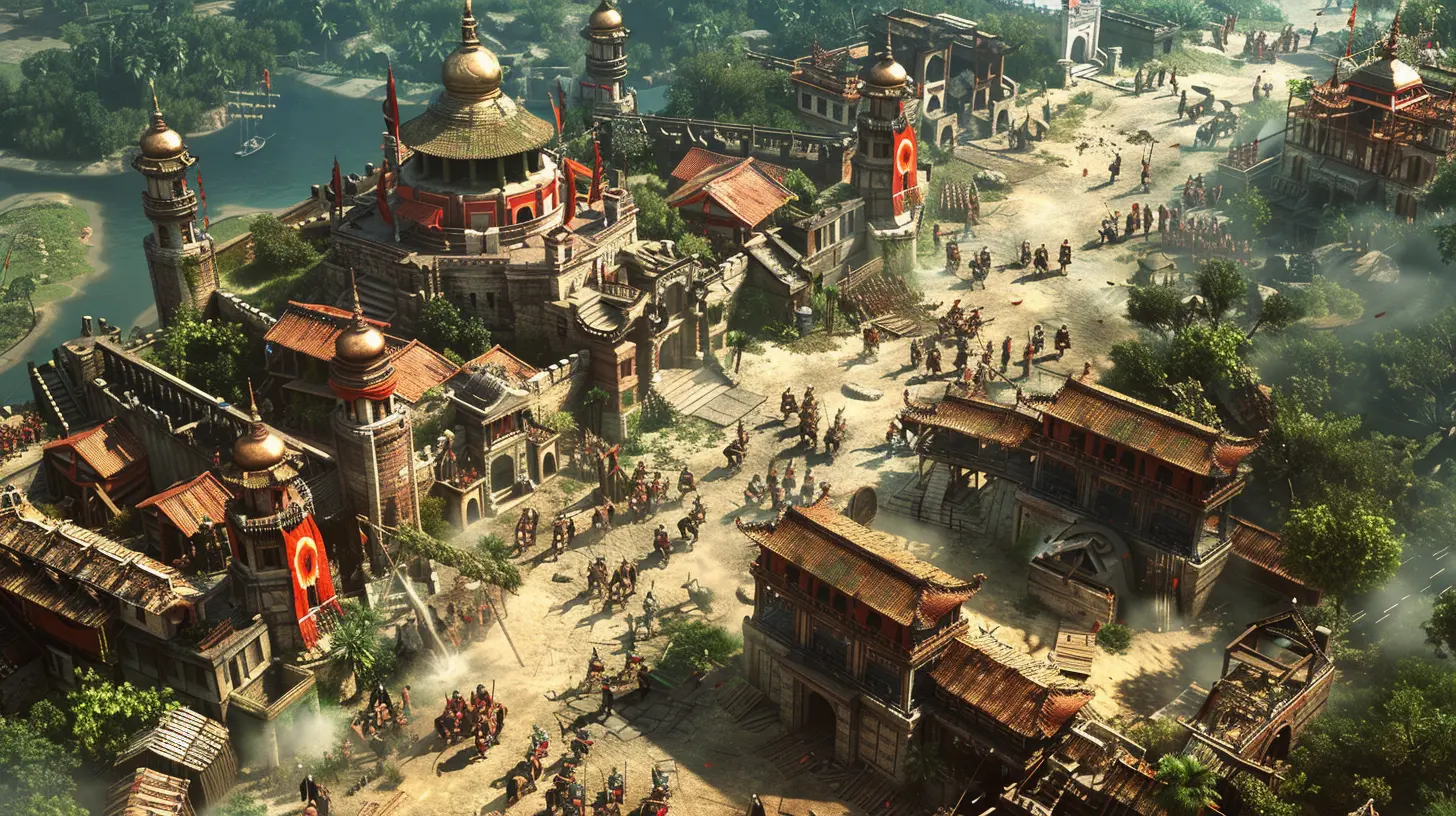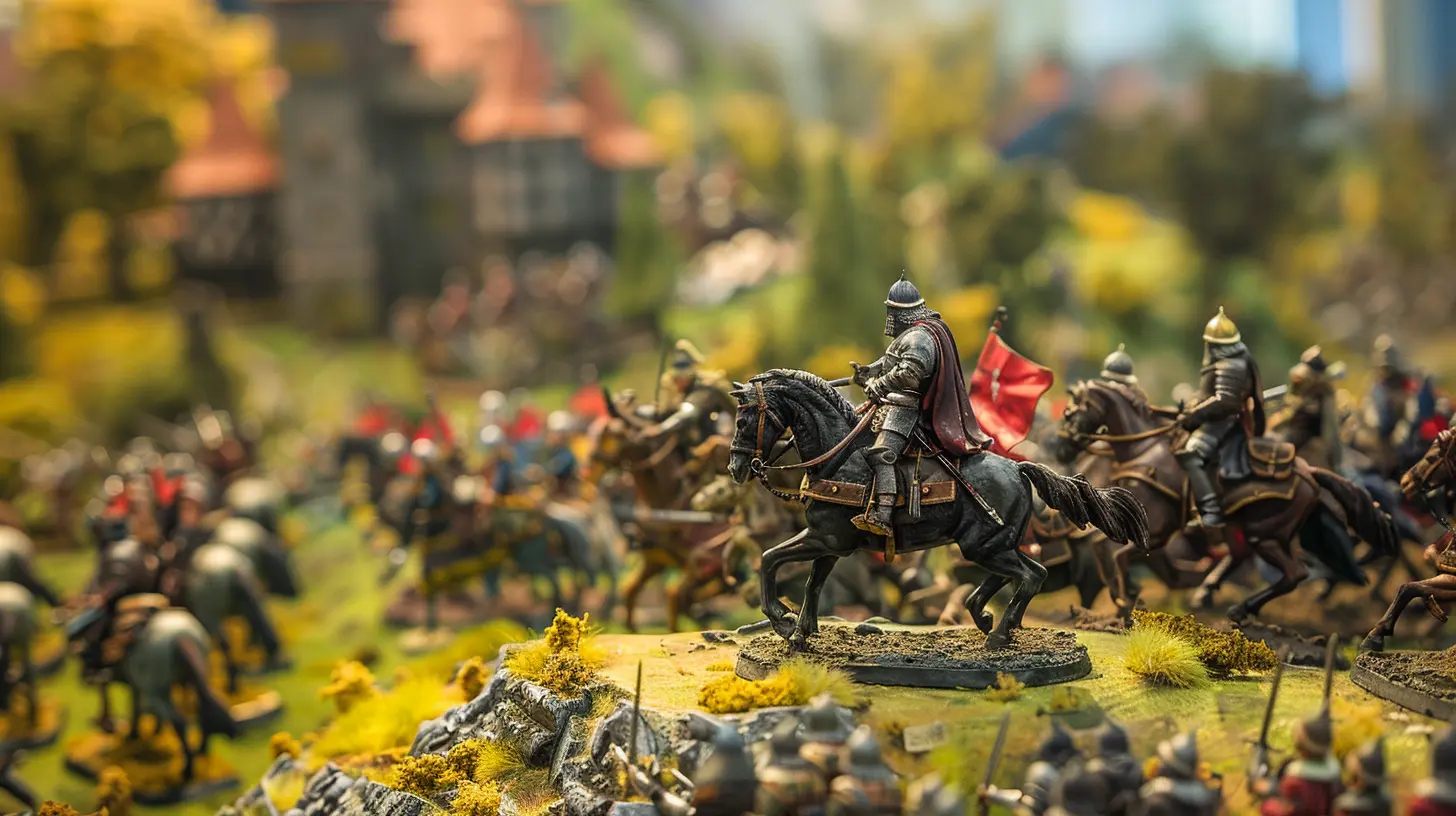Winning the Early Game in Competitive Strategy Games
15 October 2025
Strategy games are like a high-stakes game of chess, except the pieces aren’t politely confined to a board. They’re running wild, gathering resources, building armies, and engaging in mind games worthy of a spy thriller. If you’ve ever felt overwhelmed in the chaotic opening minutes of a competitive strategy game, don’t worry—you’re not alone. The early game is where legends are born, and disasters are avoided. Nail this phase, and you’ll set the stage for long-term dominance.
So, how do you conquer the early game? Let’s dive deep into the art of starting strong, with tips, tricks, and mindset shifts that will turn you into an early-game master. Ready to crush it? Let’s go!
Why the Early Game Matters So Much
Ever tried running a marathon after skipping every warm-up stretch? That’s what the mid and late game feel like if you mess up the early game. It’s the foundation. Everything you build—your army, your economy, your map control—hinges on how well you handle those first few, critical moments.In competitive strategy games, time is your biggest enemy. Every second you waste is a second your opponent can use to get ahead. Think of the early game as planting seeds. If you plant them quickly and nurture them, you’ll enjoy a lush garden later. But fiddle with the soil too long, and your opponent’s already harvesting while you’re still figuring out which seeds to use.
Common Early Game Pitfalls (And How to Avoid Them)
Before we talk strategy, let’s identify the traps most players fall into. Recognizing these mistakes is half the battle. Here are a few to watch out for:1. Playing Without a Plan
Starting a match without a strategy is like heading to the grocery store with no shopping list—you’ll spend too much time wandering aimlessly (and still forget the milk). Decide what your goals are before the game even starts. Are you rushing your opponent? Fast-expanding? Building up a defensive position? Knowing what you're aiming for helps you stay focused and efficient.2. Tunnel Vision
Ever been so obsessed with micromanaging your units that your economy crashed? Yeah, we’ve all been there. Don’t fixate so much on one aspect of the game that you neglect the others. Balance is everything.3. Over-Commitment
It’s tempting to launch an early attack, but overextending can be catastrophic if you leave yourself vulnerable to a counterattack. Think of it like gambling—don’t bet your entire stack of chips on one risky play.4. Neglecting Scouting
Flying blind in a strategy game is a recipe for disaster. If you’re not constantly gathering intel on your opponent, it’s like driving a car with a fogged-up windshield. Scout early, scout often.
The Fundamentals of a Strong Early Game
Now that we've covered what not to do, let’s talk about how to crush the early game like a pro.1. Master Your Build Order
Your build order is your opening script. It’s what most pro players spend hours perfecting. A good build order ensures that your economy is humming, your units are pumping out smoothly, and you’re ready for any early threats.Every competitive strategy game has its own meta, but a general rule of thumb is this: prioritize resource gathering first, then production, and finally, defense or offense. Don’t be afraid to tweak your build order based on what the map looks like or what your opponent seems to be doing.
2. Scout Like Your Life Depends on It
Information is power. Send out a scout as soon as possible—whether it’s a worker in a real-time strategy game or a dedicated recon unit in turn-based games. Pay attention to your opponent’s plans: Are they rushing? Building defenses? Expanding quickly? Knowing this early allows you to tailor your strategy accordingly.Hot Tip: While you’re scouting, don’t forget to deny your opponent’s scouting attempts. Keep your plans as mysterious as a magician’s trick.
3. Control the Map
In many strategy games, controlling the map is key. Why? Because it gives you access to critical resources and lets you dictate the pace of the game. Build early units not just to attack but to patrol key areas of the map. Establish your presence. Be the big dog marking its territory.4. Adaptability is King
No plan survives first contact with the enemy. Ever heard that saying? It’s true for strategy games. If your early-game script isn’t working because your opponent is doing something unexpected, switch gears. Flexibility is the mark of a great player.
Advanced Tips for Dominating the Early Game
Once you’ve got the basics down, these advanced tips will elevate your early game:1. Mind Games and Bluffing
Sometimes, it’s not about what you do, but what you make your opponent think you’re doing. Faking an early rush by moving a few units near their base can force them to overreact and waste resources building unnecessary defenses.2. Optimize Worker Efficiency
In resource-heavy strategy games, your workers are the unsung heroes. But here’s the catch: You need just the right amount. Too few, and your economy suffers. Too many, and they’ll drain resources faster than you can spend them. Get the sweet spot early.3. Know When to Fight (And When to Run)
Not every skirmish is worth engaging in. Sometimes it’s better to feint an attack and retreat than to lose your forces in a doomed battle. Pick your fights carefully—you’re setting the tone for the rest of the game.4. Timing is Everything
The early game is a race, so time your actions precisely. If you’re a second too slow with building that barracks or training that scout, you’re falling behind. Use hotkeys, practice muscle memory, and refine your decision-making speed.Mental Game: Outthinking Your Opponent
Here’s a secret: the early game isn’t just about mechanics—it’s also about psychology. If you can outthink your opponent, you’ve already won half the battle.- Stay Unpredictable: Never be too obvious with your actions. If your opponent always knows what you’re going to do, you’re easy pickings.
- Pressure Without Overcommitment: Keep your opponent on their toes by applying constant pressure without throwing your entire force into the fray. It’s like tapping someone on the shoulder repeatedly—annoying and effective.
- Stay Calm Under Pressure: If your early game starts to falter, don’t panic. A cooler head will always prevail. Adapt, adjust, and look for opportunities to turn the tide.
Practice Makes Perfect
Let’s be real here: no one becomes an early-game wizard overnight. It takes time, effort, and repetition. Re-watch your gameplay replays. Study the early-game strategies of pro players. Experiment with different tactics until you find what works best for you.And most importantly? Have fun. At its core, gaming should be enjoyable. Don’t stress too much about wins and losses—focus on improving, and the victories will come naturally.
Wrapping Up: The Power of a Strong Start
Winning the early game in competitive strategy games isn’t just about resources and units—it’s about setting the tone, dictating the pace, and putting yourself in a position to dominate. From perfecting your build order to mastering the art of scouting, the early game is where champions are forged.Remember, the early game may be short, but its impact ripples through the entire match. So, next time you load into your favorite strategy game, go in with confidence and a plan. With practice and these tips in your arsenal, you’ll be the player everyone fears to face.
all images in this post were generated using AI tools
Category:
Gaming TipsAuthor:

Pascal Jennings
Discussion
rate this article
1 comments
Noah McCracken
Mastering the early game is crucial for success in competitive strategy games! Embrace the challenge, refine your tactics, and remember, each step forward brings you closer to victory!
October 19, 2025 at 3:30 AM

Pascal Jennings
Absolutely! The early game sets the foundation for your strategy and success. Embrace the learning curve, and you'll see the rewards in the endgame!


